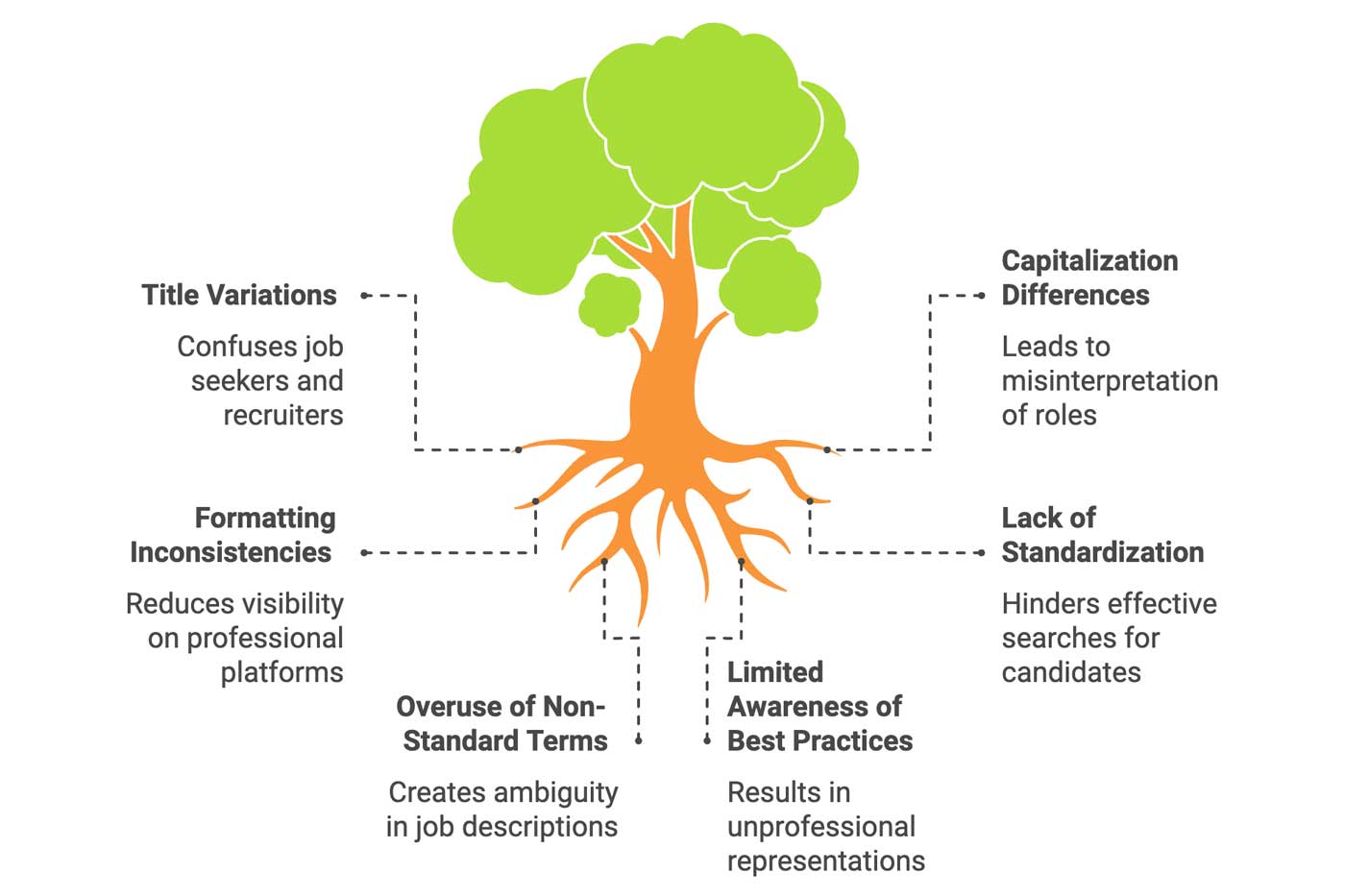
As the E-commerce and Digital Marketing Association, we often encounter a wide variety of ways professionals write job titles related to the e-commerce industry. From variations in capitalization to differing word orders, these inconsistencies create confusion for job seekers, recruiters, and employers alike. To address this challenge, we conducted an in-depth analysis of how these roles are presented across professional platforms.
This research aims to standardize the writing of key e-commerce leadership roles, providing clarity and consistency for everyone involved in the hiring process. Standardizing these titles not only improves the visibility of profiles on platforms like LinkedIn but also simplifies life for recruiters and professionals, ensuring that searches yield more relevant results. As an organization committed to setting standards and making everyday tasks easier for our colleagues in the industry, we believe this study is a step toward a more unified and efficient future.
Inconsistent Job Title Format in E-commerce
We analyzed 3,567 mentions of various ways to write roles related to e-commerce leadership. The focus was on three primary factors:
1. Role Type: Usage of “Head” vs. “Director.”
2. Order and Capitalization of Words: For example, whether “Of” is capitalized or not.
3. E-Commerce Formatting: Variations include “Ecommerce,” “eCommerce,” “E-Commerce,” and “e-commerce.”
Top 10 Most Common Variations
1. Director Of Ecommerce — 863 mentions
2. Director Of E-Commerce — 192 mentions
3. Head Of Ecommerce — 146 mentions
4. E-Commerce Director — 115 mentions
5. Ecommerce Director — 83 mentions
6. Senior Director Of Ecommerce — 38 mentions
7. Director, E-Commerce — 37 mentions
8. Director, E-Commerce — 27 mentions
9. Director Of E-Commerce Operations — 26 mentions
10. Senior Director, E-Commerce — 23 mentions
Key Observations
1. Role (Head vs. Director)
• “Director” is overwhelmingly more popular, appearing in over 80% of mentions.
• “Head” is less common but is often used for strategic, high-level leadership roles.
2. Capitalization of “Of”
• “Of” is capitalized in 68% of cases, adhering to traditional English capitalization rules.
• Using “Of” with a capital letter conveys a formal and professional tone, unlike the less common lowercase usage.
3. Formatting of “E-Commerce”
• The most frequent format is “E-Commerce” (with a hyphen and a capitalized “E”), appearing in 65% of mentions.
• “eCommerce” (lowercase “e”) accounts for 25% of mentions and is commonly used in modern, tech-centric contexts.
• “Ecommerce” and “e-commerce” are far less frequent and may appear outdated or unprofessional.
Recommendations for Writing Job Titles
Based on the analysis, we recommend the following standardized formats for job titles in the e-commerce leadership space:
1. Director Of E-Commerce
• Why: This format is the most widely used, professional, and grammatically correct. It is ideal for indicating managerial and executive-level responsibilities.
2. Head Of E-Commerce
• Why: Best suited for high-level strategic roles, emphasizing overarching leadership within the organization.
3. E-Commerce Formatting:
• Always use “E-Commerce” with a hyphen and a capitalized “E.”
• Why: This format is clear, professional, and widely recognized in business contexts.
4. Capitalization of “Of”:
• Always capitalize “Of” to align with traditional capitalization rules in English titles.
• Why: Capitalization conveys professionalism and maintains consistency in formal job titles.
Conclusion
A standardized approach to writing job titles, such as Director Of E-Commerce, enhances clarity and ensures consistency and professionalism. Adopting these conventions will make profiles more appealing to recruiters and ensure alignment with industry standards.
By following this approach—capitalizing “Of” and using the “E-Commerce” format—job titles will reflect the formal and professional nature of leadership roles in digital commerce.







